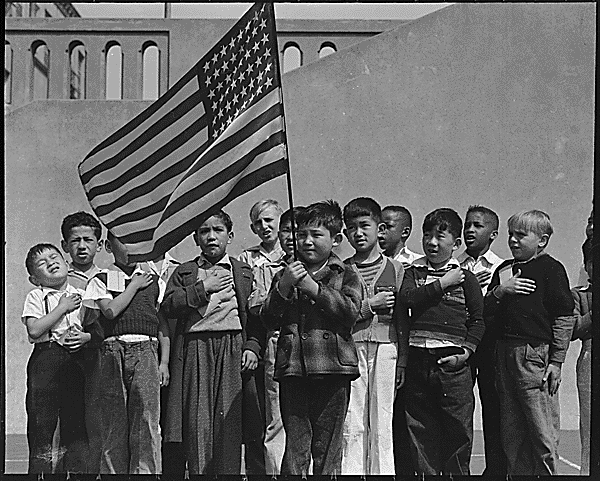
I pledge allegiance to the flag of the United States of America, and to the Republic for which it stands, one Nation, under God, indivisible, with liberty and justice for all.
31 words all Americans know. 31 words all Americans have said. 31 words meant to represent what America stands for.
What many Americans might not know is that the pledge has changed since its original publication in 1892. According to Smithsonian Magazine, the original pledge of allegiance was written by former Baptist preacher, Francis Bellamy, as a marketing gimmick in The Youth’s Companion. Throughout his time at the Companion, Bellamy wrote several editorials expressing his concern for traditional American values with the recent influx of immigrants. He argued that pledging allegiance would protect those values, so long as free public education exists. In order to continue to protect those American values, the pledge has since undergone a number of changes.
According to The Washington Post, tweaks started in 1923 with the replacement of “my flag” with “the flag of the United States of America,” for fear that immigrant children might not know which flag they are saluting to. The next major change came in 1954 with the addition of “under God.” This addition, signed into law by President Dwight Eisenhower, was made to differentiate America from “godless Communism.”
Each change has been made because of fear – fear of immigrants, fear of communists, fear of division. The pledge is meant to unite us, yet historically, it has divided our nation. According to Peter Ansoff, President of the North American Vexillogical Association (NAVA), “Flags are not just pretty pieces of colored cloth. They’re symbols, and they raise very, very deep emotions in people.“ We have fought about the words within the pledge, we have fought about the location to recite the pledge, we have even fought about the need to have a pledge.
So, does this mean we should abolish the pledge? No. However, we should reconsider its purpose. Rather than pledging to a flag symbolizing our nation, perhaps we should think about pledging to what it means to be an American. Being an American is not just about being a part of this nation. It is about fighting for equality, justice, liberty, freedom, and unity. America is a nation of individuals who are supposed to unite for the greater good.
The pledge has changed before. Could it not be time for another change? Whitworth student Garrett O’Shaughnessy said that “reciting the pledge reminds you of the meaning behind it, kind of like a subtle reminder.”
Right now, we could all use a subtle reminder of what being an American looks like. So, let’s make a change, but this time, not out of fear. Instead, let’s change out of pride. Let’s put our values at the forefront. Let’s celebrate the individual. Let’s celebrate the ideal. Maybe one day, we can attain it.












